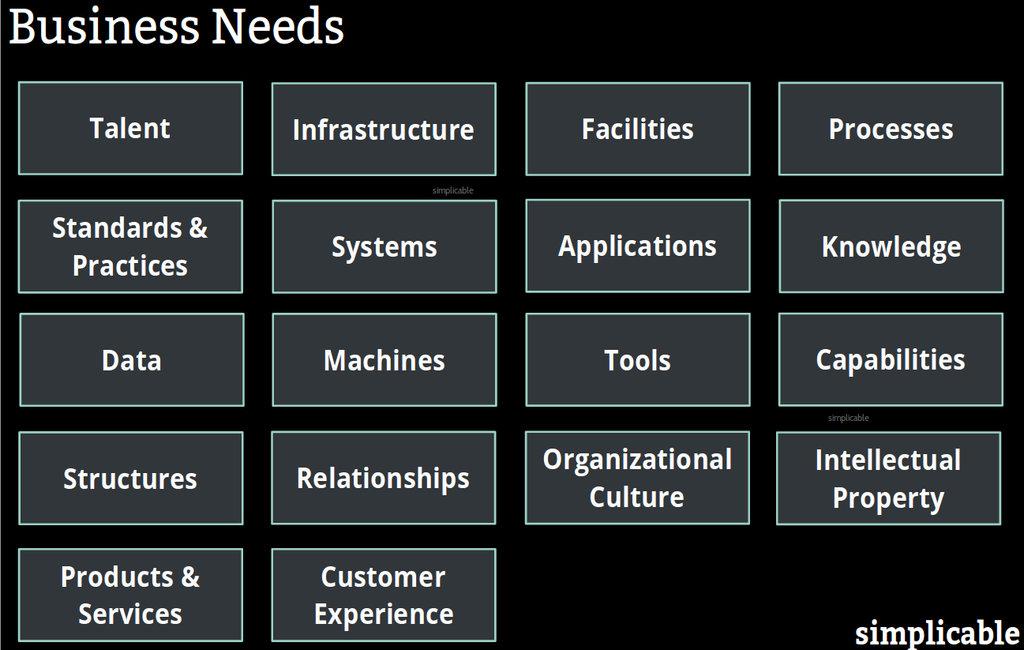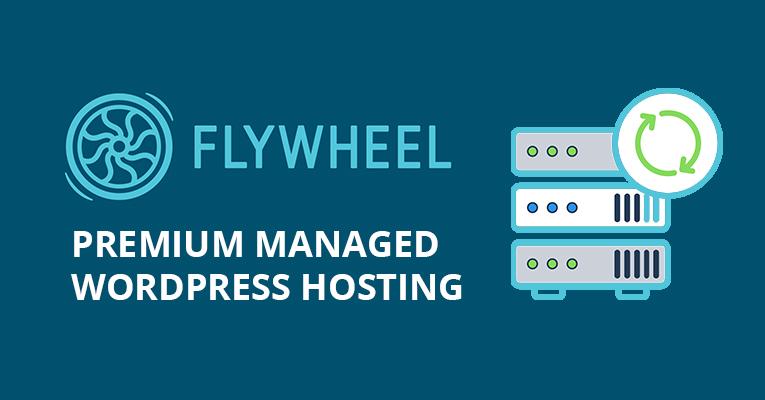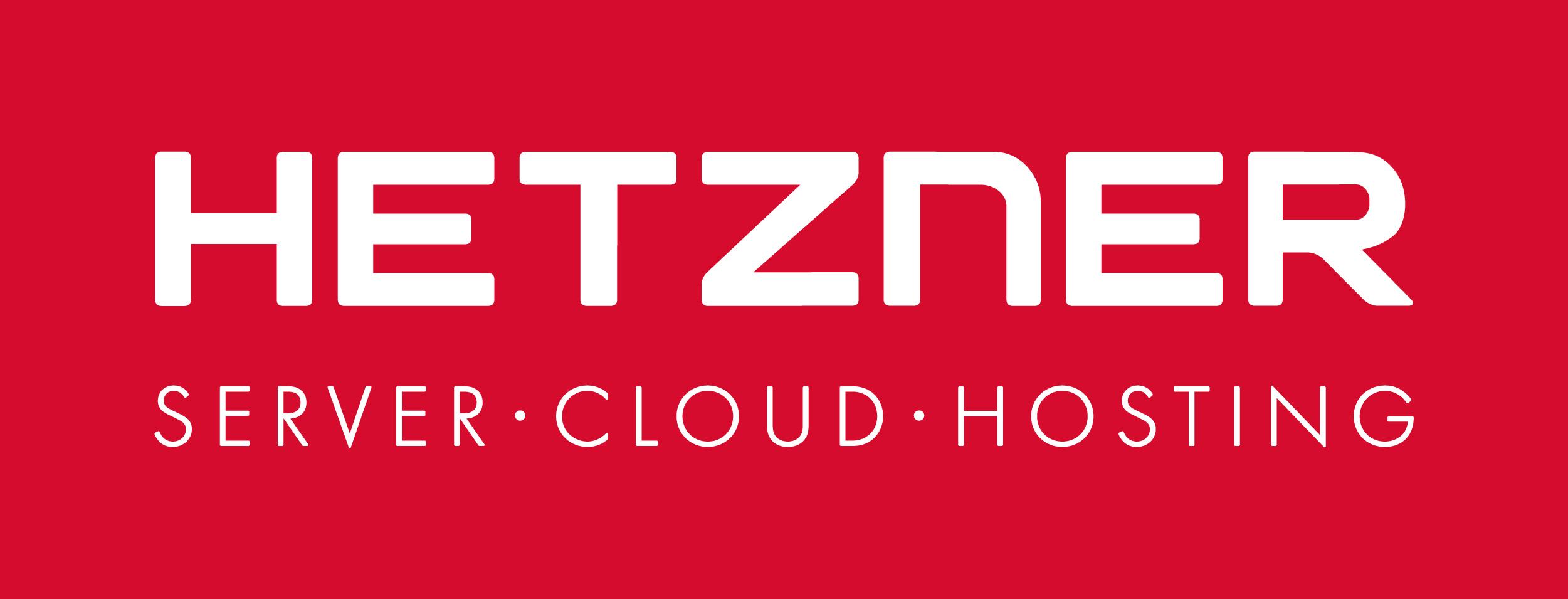
Are you ready to take your website to the next level? If you’re on the hunt for the perfect web hosting solution, you’ve likely stumbled upon two popular names: Flywheel and Web Hosting Hub. With 2024 just around the corner, it’s the ideal time to dive into a comparison that could make or break your online presence. Whether you’re a seasoned developer, a small business owner, or a passionate blogger, choosing the right hosting provider can dramatically impact your site’s performance, security, and overall success. So, how do you decide which one is right for you? In this guide, we’ll break down the key features, pricing, and unique benefits of Flywheel and Web Hosting Hub, helping you make an informed choice that aligns perfectly with your needs. Let’s get started!
Understanding the Basics of Flywheel and Web Hosting Hub
When it comes to choosing a web hosting provider, understanding the key differences in services offered by platforms like Flywheel and Web Hosting Hub is crucial. Both have carved out their niches in the competitive landscape of hosting solutions, but they cater to different needs and types of users.
Flywheel is specifically designed for WordPress users, offering a range of features tailored to streamline website management. One of its standout features is its focus on performance and optimization, making it a favorite among web developers and agencies. Here are some core aspects of Flywheel:
- Managed WordPress Hosting: Flywheel takes care of all the technical tasks associated with WordPress maintenance, allowing users to focus on content creation.
- Staging Sites: Users can create staging environments to test changes before going live, ensuring a seamless experience.
- Built-in Caching: This feature enhances website loading speeds, significantly improving user experience and SEO rankings.
- Collaborative Tools: Flywheel offers tools for team collaboration, making it easy to manage projects with clients and colleagues.
On the other hand, Web Hosting Hub appeals to a broader audience, catering not only to WordPress users but also to those looking for more generic hosting solutions. This makes it an excellent option for small businesses and personal websites alike. Key offerings include:
- Affordable Pricing: Web Hosting Hub is known for its budget-friendly plans, making it accessible for individuals and startups.
- Free Domain Registration: Users receive a free domain for the first year, a great incentive for new site owners.
- cPanel Access: With a user-friendly control panel, managing your hosting environment becomes a breeze.
- 24/7 Customer Support: Their dedicated support team is always available, ensuring that help is just a click away.
When comparing both services, it’s important to consider your specific needs. If you’re a developer or agency focused on WordPress, Flywheel’s specialized features and optimizations will likely serve you better. However, if you require a versatile hosting solution that can accommodate various types of websites, Web Hosting Hub may be the way to go.
| Feature | Flywheel | Web Hosting Hub |
|---|---|---|
| Target Users | WordPress Developers and Agencies | Small Businesses, General Users |
| Performance Optimization | High | Moderate |
| Price Range | Higher | Lower |
| Support | Specialized for WordPress | General Technical Support |
Ultimately, the choice between Flywheel and Web Hosting Hub hinges on what you prioritize in a hosting service. Are you looking for specialized tools for WordPress, or do you prefer a more general hosting solution with a strong support system? By understanding the basics of each provider, you can make a more informed decision that aligns with your web hosting needs in 2024.

Exploring the Key Features of Flywheel
When it comes to managed WordPress hosting, Flywheel stands out with a suite of features tailored to the needs of designers, developers, and agencies. Let’s dive into what makes Flywheel a compelling choice for your hosting needs.
User-Friendly Interface: Flywheel’s dashboard is designed with a clean, intuitive layout that enhances user experience. Whether you’re launching a new site or managing existing ones, the navigation is seamless. You can easily access essential tools without getting lost in complex menus.
Staging Sites: One of the standout features is the ability to create staging environments. This allows you to test changes or updates before pushing them live. It’s a game-changer for maintaining site integrity, especially for those who manage multiple client sites.
Automatic Backups: Flywheel ensures that your website data is secure with automatic backups every night. In case anything goes wrong, restoring your site is just a click away, providing peace of mind for site owners and developers alike.
Global CDN: Flywheel integrates a Global Content Delivery Network (CDN) that boosts your site’s speed and performance. By distributing content across various locations worldwide, visitors enjoy quicker load times, regardless of where they are accessing your site.
Performance Monitoring: With built-in performance monitoring tools, Flywheel allows you to keep an eye on your site’s health. You can track metrics like uptime and load speeds, ensuring that you are always delivering the best experience for your users.
Collaboration Tools: For teams working on projects, Flywheel’s collaboration features enable easy sharing and communication. You can invite clients and team members to view and comment on sites, streamlining the feedback process and enhancing client relationships.
| Feature | Benefit |
|---|---|
| User-Friendly Dashboard | Simplified management and navigation |
| Staging Sites | Safe testing environment for changes |
| Automatic Backups | Quick restore options for data security |
| Global CDN | Faster load times for users worldwide |
| Performance Monitoring | Insight into site health and performance |
| Collaboration Tools | Enhanced communication with clients and teams |
With these robust features, Flywheel not only simplifies the hosting process but also empowers users to focus on what truly matters: delivering exceptional web experiences. Whether you’re a freelancer, an agency, or a business owner, Flywheel offers the tools and capabilities to elevate your web projects to new heights.
Unpacking the Unique Offerings of Web Hosting Hub
Web Hosting Hub stands out in the crowded web hosting market by offering a variety of features designed to cater to both beginners and established businesses. With a focus on user-friendliness and customer support, they have positioned themselves as a reliable option for those looking to launch and grow their online presence.
One of the standout features of Web Hosting Hub is their unlimited bandwidth and disk space. This means users can host multiple websites without worrying about hitting a limit, making it a great choice for growing businesses that anticipate scaling. Additionally, you won’t have to deal with hidden fees, which is a common pitfall in the industry.
Another appealing aspect is their free website migration service. If you’re transferring from another host, Web Hosting Hub makes the process straightforward and hassle-free. Their experienced team will handle the migration for you, ensuring that your website remains intact and fully functional throughout the transition.
When it comes to customer support, Web Hosting Hub shines with its 24/7 live chat and phone support. Users rave about their knowledgeable staff, who are quick to resolve issues and provide assistance. This level of support is crucial, especially for newcomers who may feel overwhelmed by technical challenges.
For those interested in eCommerce, Web Hosting Hub offers a variety of tools to help you set up shop online. Their one-click installation for popular platforms like WordPress and Joomla makes it easy to get started. Plus, with their integration of SSL certificates, your online store will have the security it needs to keep customer data safe.
Another notable offering is their 30-day money-back guarantee, which allows users to test the service risk-free. This is particularly attractive for new users who want to ensure that the service meets their needs without making a long-term commitment right away.
To give you a clearer picture of how Web Hosting Hub stacks up against its competitors, here’s a quick comparison table:
| Feature | Web Hosting Hub | Flywheel |
|---|---|---|
| Unlimited Bandwidth | ✔️ | ❌ |
| Free Website Migration | ✔️ | ❌ |
| 24/7 Support | ✔️ | ✔️ |
| 30-Day Money-Back Guarantee | ✔️ | ❌ |
| One-Click Install | ✔️ | ✔️ |
Web Hosting Hub provides a well-rounded package that caters to a diverse audience. Their commitment to affordable pricing, robust features, and exceptional customer service makes them a formidable contender in the hosting landscape, especially for those weighing their options in 2024. Whether you’re a beginner or an experienced user, Web Hosting Hub has something to offer that can help you thrive online.
Comparing Performance: Speed and Uptime Metrics
When it comes to choosing a hosting provider, understanding speed and uptime metrics is crucial. In the competitive landscape of web hosting, Flywheel and Web Hosting Hub both promise stellar performance, but how do they stack up against each other in real-world scenarios? Let’s dive into the vital statistics that can make or break your website’s success.
Speed: The Race to Load
Speed is more than just a luxury; it’s a necessity. Websites that load quickly provide better user experiences and are favored by search engines. Here’s a comparison of the average loading times for both providers:
| Feature | Flywheel | Web Hosting Hub |
|---|---|---|
| Average Load Time | 1.5 seconds | 2.2 seconds |
| Optimized Caching | Yes | No |
Flywheel boasts an impressive average load time of 1.5 seconds, thanks largely to its built-in caching solutions and CDN integration. On the other hand, Web Hosting Hub, with an average of 2.2 seconds, lacks some of these optimizations, which could slow down your site, especially during peak traffic periods.
Uptime: Always Online
Uptime is another critical metric that indicates the reliability of a hosting service. A website that is frequently down can lose visitors and revenue. Here’s how Flywheel and Web Hosting Hub compare:
| Provider | Uptime Guarantee | Average Uptime |
|---|---|---|
| Flywheel | 99.95% | 99.9% |
| Web Hosting Hub | 99.9% | 99.7% |
Flywheel offers a 99.95% uptime guarantee, reflecting its commitment to keeping your site accessible at all times. In contrast, Web Hosting Hub provides a slightly lower 99.9% guarantee, which translates to a few more hours of downtime each year. While these differences may seem small, they can significantly affect your business’s reliability.
Conclusion: Making the Right Choice
if speed and uptime are your top priorities, Flywheel emerges as the more robust option. With superior loading times and a higher uptime guarantee, it positions itself as the ideal choice for businesses looking to enhance their online presence. Web Hosting Hub has its merits, especially for those on a tighter budget, but the trade-offs in performance might not be worth it for serious projects.

User Experience: Flywheel’s Intuitive Interface vs Web Hosting Hub’s Dashboard
When it comes to web hosting, user experience is crucial for both novice and experienced users. Flywheel and Web Hosting Hub both offer unique interfaces, but they cater to different needs and preferences. Let’s dive into what makes Flywheel’s intuitive interface stand out against the more traditional dashboard of Web Hosting Hub.
Flywheel’s Interface provides a seamless experience that is designed specifically for WordPress users. Here are some key features:
- Clean Layout: The dashboard is visually appealing and easy to navigate, with a focus on essential tools.
- One-Click Actions: Users can perform common tasks like backups and site management with just one click, reducing time spent on mundane tasks.
- Client Management: Flywheel enables agencies to manage multiple client sites effortlessly with a unified dashboard, making it an excellent choice for freelancers and agencies.
On the other hand, Web Hosting Hub’s Dashboard is designed with traditional hosting in mind. While it offers a wide range of features, the complexity can be a double-edged sword:
- Comprehensive Tools: Users have access to a plethora of features, but the layout can sometimes feel overwhelming.
- CPanel Integration: Familiar to many, the CPanel offers robust functionality, albeit with a steeper learning curve for new users.
- Customization Options: While it allows for deeper customization, the options can be confusing for those not well-versed in web hosting nuances.
| Feature | Flywheel | Web Hosting Hub |
|---|---|---|
| User Interface | Intuitive and streamlined | Traditional and comprehensive |
| Ease of Use | Beginner-friendly | Advanced users may benefit more |
| Client Management | Excellent for agencies | Basic management tools |
Ultimately, the choice between these two platforms boils down to your specific needs. If you value an easy-to-use, visually appealing interface that simplifies WordPress management, Flywheel is the clear winner. Conversely, if you prefer a more traditional setup with extensive customization options and don’t mind a steeper learning curve, Web Hosting Hub might be the right fit for you.
both hosting services have their merits, but Flywheel’s focus on user experience and streamlined functionality makes it a compelling choice for those looking to enhance their web management without the hassle. Whether you’re running a personal blog or managing multiple client sites, the user experience offered by Flywheel is designed to keep your focus on creating rather than troubleshooting.

Pricing Plans: Which Option Provides the Best Value?
When it comes to choosing between Flywheel and Web Hosting Hub, understanding the pricing plans is crucial. Both platforms offer a range of options designed to cater to different needs, but determining which provides the best value can be a bit complex. Let’s break it down.
Flywheel is known for its premium managed WordPress hosting services, which come at a higher price point. Their pricing plans are tailored for freelancers and agencies looking for advanced features and dedicated support. Here’s a quick overview of what Flywheel offers:
| Plan | Monthly Price | Storage | Monthly Visits |
|---|---|---|---|
| Starter | From $15 | 5 GB | 5,000 |
| Freelance | From $30 | 10 GB | 25,000 |
| Agency | From $75 | 15 GB | 100,000 |
On the other hand, Web Hosting Hub takes a more budget-friendly approach while still offering reliable services. Their plans are particularly attractive for small businesses and individuals looking for simple hosting solutions without breaking the bank. Here’s how their pricing stacks up:
| Plan | Monthly Price | Storage | Bandwidth |
|---|---|---|---|
| Basic | From $3.99 | 100 GB | Unmetered |
| Plus | From $6.99 | Unlimited | Unmetered |
| Pro | From $12.99 | Unlimited | Unmetered |
So, which is the better value? If you prioritize top-tier performance and dedicated support, Flywheel’s pricing may justify the investment. They offer features like nightly backups, automatic updates, and a staging environment that can save you time and headaches in the long run.
However, if your primary concern is affordability with solid performance, Web Hosting Hub delivers excellent value for money. Their lower-tier plans come packed with ample storage and unmetered bandwidth, making them ideal for personal blogs or small business websites.
Ultimately, the decision hinges on your specific needs. Consider factors such as your website’s size, expected traffic, and whether premium features are essential for your goals. In this competitive landscape, both Flywheel and Web Hosting Hub have their strengths, catering to different segments of the market.

Support and Customer Service: Who Comes Out on Top?
Support Options
When it comes to support and customer service, Flywheel and Web Hosting Hub offer distinct approaches tailored to their user bases. Flywheel, primarily focused on WordPress hosting, provides dedicated support specifically for WordPress users. Their team consists of WordPress experts who are well-versed in the platform, ensuring that you get precise and knowledgeable assistance when you need it the most.
On the other hand, Web Hosting Hub prides itself on offering a wide range of hosting solutions, which means their support team is equipped to handle a variety of issues across different platforms. Whether you’re dealing with a WordPress site, a simple HTML site, or something more complex, Web Hosting Hub aims to provide support that caters to all needs.
Response Time and Availability
Both companies provide 24/7 support, but there are notable differences in their response times and availability:
| Provider | Average Response Time | Contact Methods |
|---|---|---|
| Flywheel | Less than 1 hour | Live Chat, Email |
| Web Hosting Hub | 2-4 hours | Phone, Live Chat, Email |
Knowledge Base and Resources
Another factor to consider is the availability of resources. Flywheel has an extensive knowledge base that covers a variety of topics related to WordPress hosting. This includes tutorials, troubleshooting guides, and best practices that can empower users to solve minor issues independently. Their blog is also a treasure trove of tips and tricks for optimizing WordPress sites.
Web Hosting Hub also offers a solid knowledge base, but it tends to be more general in nature. Users will find a mix of support articles covering a wide array of topics, but those looking for specific WordPress-focused content may find it lacking compared to Flywheel’s specialized resources.
User Experience and Community Feedback
When it comes to user experience, feedback plays an essential role. Flywheel consistently receives praise for its user-friendly interface and high-quality support interactions. Customers often remark on the speed and efficiency of their service, highlighting how quickly their issues are resolved.
Web Hosting Hub has a loyal customer base, but feedback on their support can be mixed. While many users appreciate the breadth of support avenues available, some have reported longer wait times and less specialized knowledge for specific issues. This variance in experience can be a deciding factor for potential customers.
Conclusion
Ultimately, the choice between Flywheel and Web Hosting Hub hinges on your specific needs. If you prioritize specialized WordPress support with quick response times and a wealth of resources, Flywheel is likely your best bet. Conversely, if you’re looking for a general hosting provider that can handle a variety of platforms and offers multiple contact methods, Web Hosting Hub might be the right choice for you.

Security Features: Keeping Your Site Safe with Flywheel and Web Hosting Hub
When it comes to ensuring that your website remains safe and secure, both Flywheel and Web Hosting Hub offer a robust suite of security features tailored to protect your digital assets. Let’s delve into what each platform brings to the table, helping you make an informed choice for 2024.
Flywheel’s Security Features
Flywheel takes security seriously and has implemented several key features to safeguard your site:
- Daily Backups: Automatic daily backups ensure that your site is always recoverable in case of an emergency.
- SSL Certificates: Free SSL certificates come standard, encrypting your data and boosting your SEO.
- Malware Scanning: Regular malware scans help identify potential threats before they become a problem.
- Automatic Updates: Flywheel automatically updates WordPress core and plugins, minimizing vulnerabilities.
These features create a strong security framework, providing peace of mind for site owners and users alike. Moreover, Flywheel’s platform is optimized for WordPress, which means that they can address specific security concerns inherent to the CMS.
Web Hosting Hub’s Security Features
Web Hosting Hub also boasts a variety of security measures that ensure your website operates safely:
- Free SSL Certificates: Like Flywheel, Web Hosting Hub provides free SSL certificates to secure your site.
- Hack Alert: This feature notifies you if your site has been compromised, allowing for immediate action.
- Website Firewall: A built-in firewall protects your site from unwanted intrusions and attacks.
- Secure Servers: With security-focused data centers, Web Hosting Hub enhances your website’s resilience against threats.
With these features, Web Hosting Hub offers a solid security solution that can cater to smaller websites or those just starting out, providing a reliable shield against common vulnerabilities.
| Security Feature | Flywheel | Web Hosting Hub |
|---|---|---|
| Free SSL Certificates | ✔️ | ✔️ |
| Daily Backups | ✔️ | ❌ |
| Malware Scanning | ✔️ | ✔️ |
| Website Firewall | ❌ | ✔️ |
| Automatic Updates | ✔️ | ❌ |
Ultimately, the right choice between Flywheel and Web Hosting Hub will depend on your specific needs. If you prioritize comprehensive security features tailored for WordPress, Flywheel may be the better choice. However, if you’re looking for a budget-friendly option that still offers essential security tools, Web Hosting Hub stands strong.

Scalability: Preparing Your Site for Growth
As your website grows, so do the demands on your hosting infrastructure. Scalability is crucial for ensuring that your site can handle increased traffic, additional content, and new functionalities without compromising performance. Both Flywheel and Web Hosting Hub offer solutions to meet these needs, but understanding their scalability features can be the key to sustained growth.
Flywheel’s Managed Hosting provides a robust environment tailored for WordPress sites. Its architecture is designed for efficiency, enabling seamless scaling as your audience expands. Key features include:
- Automatic Resource Allocation: Flywheel adjusts resources to meet traffic spikes, ensuring your site remains accessible.
- Global CDN Integration: Content Delivery Networks help distribute your data efficiently, improving load times worldwide.
- Staging Sites for Testing: You can test new features or updates without affecting your live site.
On the other hand, Web Hosting Hub offers scalability through its flexible hosting plans. This means you can start small and upgrade as needed without the hassle of migrating your site. Benefits include:
- Easy Upgrade Options: Transitioning from shared hosting to VPS or dedicated servers is straightforward.
- Unmetered Bandwidth: Ideal for growing sites, allowing you to handle traffic surges without additional fees.
- Enhanced Security Features: Protects your expanding site as it becomes more visible online.
When considering scalability, it’s essential to evaluate your expected growth. Are you anticipating a steady increase in traffic, or do you expect sudden jumps during promotional events? Flywheel excels in handling unpredictable traffic patterns thanks to its robust infrastructure, while Web Hosting Hub provides the flexibility to grow at your own pace.
| Feature | Flywheel | Web Hosting Hub |
|---|---|---|
| Traffic Management | Automatic resource allocation | Unmetered bandwidth |
| Content Delivery | Global CDN integration | Standard CDN options |
| Upgrade Flexibility | Managed upgrades through support | Easy plan transitions |
Ultimately, the choice between Flywheel and Web Hosting Hub for scalability boils down to your specific needs. Flywheel may be ideal for those seeking a hassle-free, managed environment, while Web Hosting Hub offers a more hands-on approach, perfect for users who want to control their hosting journey. Choose wisely, as the right decision can set the foundation for your online success.

Integration Capabilities: Connecting with Your Favorite Tools
When choosing a platform to enhance your digital presence, the ability to integrate seamlessly with your existing tools can make all the difference. Both Flywheel and Web Hosting Hub offer unique features designed to connect effortlessly with your favorite applications, streamlining your workflow and boosting productivity.
Flywheel shines in its integration capabilities, particularly for those who work in teams or manage multiple sites. Its platform allows for smooth connections with popular tools such as:
- WordPress Plugins: Easily incorporate essential plugins for SEO, security, and performance enhancements.
- Design Tools: Directly link to tools like Sketch and Figma for effortless collaboration between designers and developers.
- Analytics Services: Integrate with Google Analytics and other tracking tools to keep watch over your site’s performance.
On the other hand, Web Hosting Hub provides robust integration features that cater to different needs. With a focus on user-friendly experiences, it allows you to connect with:
- Email Marketing Platforms: Tools like Mailchimp and Constant Contact can be integrated to manage your email campaigns directly from your site.
- Content Management Systems: Smooth integration with Joomla and Drupal for users who prefer these platforms.
- Social Media Channels: Effortlessly link your website to social media accounts, enhancing your online visibility and engagement.
To give you a clearer picture, let’s compare the integration strengths of both platforms:
| Feature | Flywheel | Web Hosting Hub |
|---|---|---|
| Plugin Compatibility | Extensive support for WordPress plugins | Supports various CMS plugins |
| Design Tool Integration | Sketch, Figma | N/A |
| Email Marketing | Limited options | Mailchimp, Constant Contact |
| Analytics Tools | Google Analytics, more | Basic tracking options |
both platforms offer valuable integration options that can enhance your website’s functionality. Flywheel excels for creative teams needing collaborative tools, while Web Hosting Hub targets users looking for straightforward email marketing and social media solutions. Your choice will ultimately depend on which integrations align best with your workflow and business goals.
In a rapidly evolving digital landscape, the ability to connect with your favorite tools is no longer a luxury but a necessity. Consider the specific integrations that will empower your team and elevate your projects, ensuring a more efficient, cohesive working environment.
Real User Reviews: What Customers Are Saying
Users have been sharing their experiences with both Flywheel and Web Hosting Hub, offering insights that can help potential customers make informed decisions. Here’s a roundup of what they are saying:
Flywheel Feedback
Many users are raving about Flywheel’s user-friendly interface and exceptional customer support. Here are a few highlights:
- Design and Usability: Customers appreciate the clean and intuitive dashboard, making it easy to manage sites without a steep learning curve.
- Performance: Users consistently report fast loading times and reliable uptime, which are crucial for maintaining a professional online presence.
- Staging Sites: Flywheel’s staging environment is a favorite among developers, allowing seamless testing before going live.
What Web Hosting Hub Users Are Saying
On the other hand, Web Hosting Hub has its share of enthusiastic users. Here’s what stands out:
- Affordability: Customers often highlight the competitive pricing, making it an attractive option for startups and small businesses.
- Customer Support: Many reviews commend the 24/7 support team for being responsive and helpful, assisting users through various technical issues.
- Unlimited Resources: Users appreciate the unlimited disk space and bandwidth, which provides peace of mind for growing websites.
Comparative Insights
When comparing both services, some users identified key differences that may influence their choice:
| Feature | Flywheel | Web Hosting Hub |
|---|---|---|
| Best For | Creative Agencies | Small Businesses |
| Staging Area | Yes | No |
| Support Type | Specialized WordPress Support | General 24/7 Support |
personal experiences suggest that the choice between Flywheel and Web Hosting Hub largely depends on individual needs. Whether it’s the specialized focus of Flywheel or the budget-friendly options of Web Hosting Hub, users seem satisfied with their respective choices.
At the end of the day, real user reviews provide a window into the strengths and weaknesses of both platforms, empowering new customers to select the best fit for their specific requirements. Exploring community feedback can be invaluable as you make your decision in 2024.

Making the Right Choice for Your Business Needs
Choosing the right platform for your business is crucial, especially when it comes to hosting services. In the realm of digital solutions, Flywheel and Web Hosting Hub stand out, each catering to different needs and preferences. Understanding the unique advantages of each can help you make an informed decision tailored to your specific requirements.
When evaluating these two options, consider the following key factors:
- Performance: Speed is essential for user experience. Flywheel is optimized for WordPress, boasting fast load times, while Web Hosting Hub offers solid performance for a variety of websites.
- User Experience: Flywheel prides itself on a user-friendly interface tailored for developers and designers. Its managed WordPress hosting removes the technical headaches, enabling you to focus on creativity. In contrast, Web Hosting Hub provides a more traditional cPanel experience, which some users may find comforting.
- Customer Support: The quality of customer support can make or break your hosting experience. Flywheel excels with its dedicated support team that understands the nuances of WordPress. On the other hand, Web Hosting Hub offers 24/7 support via chat and phone, valued by users who prefer immediate assistance.
- Pricing: Understanding your budget is essential. Flywheel’s plans might seem premium, but the features included—like automatic backups and free migrations—can justify the cost. Web Hosting Hub tends to be more wallet-friendly, especially for shared hosting, making it a compelling choice for small businesses.
To provide a clearer comparison, here’s a simple table showcasing some of the main features of both services:
| Feature | Flywheel | Web Hosting Hub |
|---|---|---|
| Optimized for WordPress | ✔️ | ❌ |
| Free SSL Certificate | ✔️ | ✔️ |
| Automatic Backups | ✔️ | ❌ |
| Customer Support | 24/7 WordPress Experts | 24/7 General Support |
| Starting Price | $15/month | $2.99/month |
Ultimately, the decision hinges on your business goals and technical comfort level. If you prioritize a hassle-free experience and excellent WordPress support, Flywheel might be your best bet. Conversely, if you need a more budget-friendly, versatile hosting solution without a specific focus on WordPress, Web Hosting Hub could be the ideal choice.
Take the time to assess your business’s current and future hosting needs. Consider factors like scalability, ease of use, and specific functionalities that may enhance your website’s performance. Choosing a platform that aligns with your vision will not only streamline your operations but also support your business growth in the competitive digital landscape.

Expert Recommendations: Which Hosting Solution is Right for You?
Choosing the right hosting solution can feel overwhelming, especially with so many options available. When comparing Flywheel and Web Hosting Hub, it’s essential to consider your specific needs and goals.
Performance and Speed: If your primary concern is speed and performance, Flywheel might be the better choice. With its optimized server environments tailored for WordPress, you can expect faster load times and improved site performance. On the other hand, while Web Hosting Hub provides decent performance, it may not match the speed optimization that Flywheel offers.
Ease of Use: For those who prioritize a user-friendly interface, Flywheel shines with its intuitive dashboard and streamlined workflow. This can be particularly beneficial for freelancers and agencies managing multiple client sites. Web Hosting Hub, while also user-friendly, may require a bit more technical knowledge to navigate effectively, especially for beginners.
Support: Customer support is another critical factor to consider. Flywheel takes pride in its exceptional customer service, with WordPress experts available 24/7 to assist with any issues. Web Hosting Hub offers solid support as well, but reviews suggest that response times can vary. If having immediate access to knowledgeable support is essential to you, Flywheel may have the edge.
Features: When it comes to features, Flywheel provides a suite of tools specifically designed for WordPress users, including:
- Staging environments for testing changes before going live
- Automatic backups to ensure your data is safe
- Free migration services to help you switch hosts easily
Web Hosting Hub, while feature-rich, may not offer the same level of WordPress-centric tools, potentially complicating the user experience for WordPress site owners.
| Feature | Flywheel | Web Hosting Hub |
|---|---|---|
| WordPress Optimization | ✔️ | ❌ |
| Free Site Migration | ✔️ | ✔️ |
| 24/7 Expert Support | ✔️ | ✔️ |
| Automatic Backups | ✔️ | ❌ |
Price and Value: While both platforms offer competitive pricing, Flywheel’s plans tend to be slightly higher due to the premium features and specialized support they provide. If you’re looking for robust performance and high-quality support, the investment in Flywheel may pay off in the long run. However, if you’re on a tighter budget, Web Hosting Hub offers affordable plans that might suit your needs, albeit with a few compromises.
Ultimately, the right hosting solution for you will depend on your unique requirements, whether that’s speed, support, or budget. Taking the time to evaluate each option’s strengths and weaknesses will guide you toward making the best decision for your website.

Final Thoughts: Flywheel or Web Hosting Hub? Your Ultimate Decision Guide
Choosing between Flywheel and Web Hosting Hub can be a significant decision for your online presence, especially as we step into 2024. Each service has its unique strengths, so understanding your specific needs is vital in making the right choice for your business or personal site.
Performance and Speed: Flywheel shines in its optimized environment for WordPress, offering lightning-fast load times and reliable uptime. If your site requires superior performance, especially during high traffic periods, Flywheel is built with that in mind. In contrast, while Web Hosting Hub provides decent speed, it may not match Flywheel’s level of optimization tailored specifically for WordPress.
User Experience: User-friendliness is where Flywheel takes the lead with its intuitive dashboard and streamlined setup process. It’s designed to cater to both novice users and seasoned developers. Web Hosting Hub also offers a straightforward interface, but its features may seem a bit cluttered compared to Flywheel’s elegant simplicity. If you value a hassle-free experience, Flywheel could be the way to go.
Customer Support: Both providers boast solid customer support, but Flywheel offers a more specialized service. Their support team has extensive WordPress knowledge, ensuring you receive tailored assistance for any WordPress-related issues. On the other hand, Web Hosting Hub provides general hosting support, which can be helpful but may not dive into WordPress specifics as deeply as Flywheel.
Pricing and Value: When it comes to cost, Web Hosting Hub generally offers more budget-friendly plans, making it appealing for those just starting. However, Flywheel’s pricing reflects its premium services, including advanced features like staging sites and automatic backups. Consider what features are essential for your venture. If you’re looking for value in performance and specialized support, it may be worth the investment in Flywheel.
| Feature | Flywheel | Web Hosting Hub |
|---|---|---|
| Optimized for WordPress | Yes | No |
| Customer Support | WordPress Experts | General Hosting |
| Staging Sites | Included | No |
| Backup Services | Automatic | Manual |
| Pricing | Premium | Budget-Friendly |
Ultimately, the choice between Flywheel and Web Hosting Hub will hinge on your specific needs. If you prioritize speed, expert support, and WordPress-specific features, Flywheel is an excellent option. Conversely, if you need a more economical solution and are okay with general support, Web Hosting Hub may suit your requirements.
Carefully evaluate what matters most for your online journey. With the right hosting provider, you’ll set a strong foundation for your website’s growth and success in 2024 and beyond.
Frequently Asked Questions (FAQ)
Sure! Here’s a Q&A section for an article comparing Flywheel and Web Hosting Hub, tailored for 2024 in a conversational and persuasive tone.
Q&A: Flywheel vs. Web Hosting Hub – Your 2024 Guide
Q: What’s the main difference between Flywheel and Web Hosting Hub?
A: Great question! Flywheel is specifically designed for WordPress hosting, making it a fantastic choice for freelancers and agencies who focus on WordPress sites. They offer features like staging environments, one-click backups, and excellent collaboration tools. On the other hand, Web Hosting Hub is more of a general web host, catering to a broader range of websites, including shared hosting for various platforms. If you’re all about WordPress, Flywheel might just be your best bet.
Q: Which service is better for beginners?
A: If you’re just starting out, Flywheel could be the more user-friendly option. Their platform is intuitive and packed with helpful resources for newcomers. Plus, their customer support is standout! Web Hosting Hub also offers good support, but its interface can be a bit overwhelming if you’re not familiar with web hosting jargon. If simplicity is your goal, Flywheel shines here!
Q: What about pricing? Which one is more affordable?
A: When it comes to pricing, Web Hosting Hub generally offers more budget-friendly options, especially for shared hosting plans. However, Flywheel’s pricing reflects its premium features and specialized services. Think of it as an investment – you’re paying for speed, security, and stellar support. If your focus is quality and you plan to scale your WordPress site, Flywheel’s pricing may very well justify itself!
Q: How do they compare in terms of performance?
A: Performance-wise, Flywheel takes the lead! They utilize a robust infrastructure optimized specifically for WordPress, which means faster load times and better uptime. Web Hosting Hub does a decent job, but if you want top-tier performance, especially for a WordPress site, Flywheel is the way to go. Fast websites not only enhance user experience but can also boost your search engine rankings!
Q: What about customer support?
A: You’ll love Flywheel’s customer support! They offer 24/7 chat support with WordPress experts who understand the platform inside and out. Web Hosting Hub also has solid customer service, but their expertise isn’t as focused on WordPress specifically. If you run into a snag, Flywheel’s team will likely get you back on track more quickly.
Q: Is it easy to migrate from one host to another?
A: Absolutely! Flywheel has a streamlined migration process that makes it easy to transfer your WordPress site. They even offer a free migration service! Web Hosting Hub provides migration tools as well, but you might find Flywheel’s approach to be smoother, especially if you’re not technically inclined. If you want a hassle-free experience, Flywheel is a winner!
Q: Which one should I choose for my e-commerce site?
A: If your e-commerce site is built on WordPress, Flywheel would be your best match! It’s optimized for speed and security, both crucial for online shopping. They also integrate well with various WooCommerce extensions. If you’re looking at a more diverse range of e-commerce options beyond WordPress, Web Hosting Hub might be worth considering, but for a clean WordPress setup, Flywheel steals the show.
Q: Any final thoughts for 2024?
A: Here’s the deal: if you’re focused on WordPress and want a host that provides exceptional service, speed, and tools tailored for your needs, Flywheel is hard to beat. But if you are on a tighter budget or want the flexibility of hosting various types of websites, Web Hosting Hub could be a great choice. Ultimately, think about what you need most, and pick the one that aligns with your goals. Happy hosting!
—
Feel free to adjust any part of this Q&A to better fit your article’s overall flow or specific focus!
Closing Remarks
choosing between Flywheel and Web Hosting Hub ultimately boils down to your specific needs and preferences. If you’re a creative professional seeking a seamless WordPress experience with top-notch support, Flywheel could be your perfect match. It’s designed for those who want to focus on their craft without the hassle of technical headaches.
On the other hand, if you’re looking for a more budget-friendly option that still delivers solid performance and flexibility, Web Hosting Hub may be the way to go. With its scalable plans and user-friendly tools, it caters well to small businesses and those just starting out in the digital landscape.
As we step into 2024, consider what matters most to you: the ease of use, customer support, or perhaps the cost. Both Flywheel and Web Hosting Hub have unique strengths, so take the time to weigh your options carefully. Whatever you choose, ensure it aligns with your goals and sets you up for success in the coming year.
Ready to make a decision? Dive in, explore further, and get your website off to a flying start in 2024! Happy hosting!






